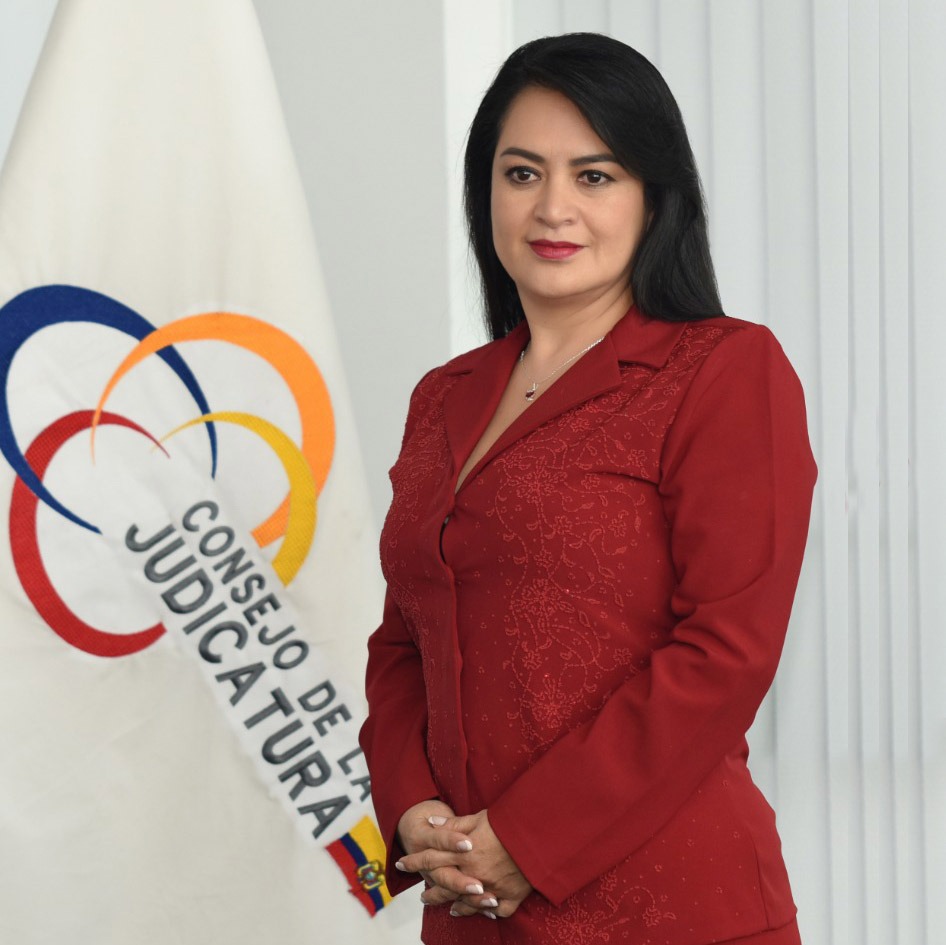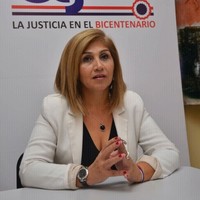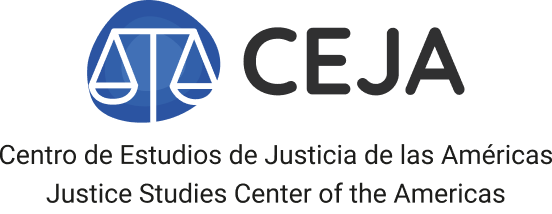The vote of the OAS General Assembly determined that Benjamin Berger, María del Carmen Maldonado and María Victoria Rivas will join the board beginning January 1, 2021 and will serve through 2023.
In the context of the 50th Regular Session of the General Assembly, the member states of the Organization of American States (OAS) elected three new members to the JSCA Board of Directors. The mission of the technical agency, which is headquartered in Santiago, Chile, is to provide technical support to OAS member states in their justice system reform processes.
In an unprecedented remote voting process (in the context of a virtual session), Benjamin Berger of Canada and María del Carmen Maldonado Sánchez of Ecuador were elected with 30 votes and María Victoria Rivas of Paraguay was elected with 19.
The new board members will serve ad honorem from January 1, 2021 through December 31, 2023. They join current board members Daniel Petrone of Argentina (President), Patricia Pérez of Chile, Jenny Murphy of the United States and Maytrie Kuldip of Suriname.
The new board members will fill the vacancies left by George Thomson of Canada, who completed his second and final statutory term, and Margarita de Hegedus of Uruguay and Alexis Mera of Ecuador, who completed their first statutory period without renewal.
“The countries of the Americas have been undertaking important justice system reforms. JSCA supports their efforts by evaluating their work, proposing organizational improvements, analyzing management and work processes, and designing and developing training programs focused on the skills and strategies required to change practices and obtain the desired results,” stated JSCA Executive Director Jaime Arellano.
“JSCA promotes greater access to justice with a gender perspective, which is especially necessary during and after the Covid-19 pandemic. In addition to fully restoring judicial services, we seek the reestablishment of non-judicial mechanisms of access to justice and collaborative dispute resolution methods within and beyond judicial processes. We are currently identifying challenges in the area of digitalization and technology that can accompany these processes with full respect for procedural guarantees.”
“We congratulate our new board members-elect, who will undoubtedly contribute to the technical nature of JSCA’s work and our organization’s institutional sustainability. At the end of the year, we will thank the renowned jurists who are finishing their time on the board and have been working to improve justice in the region,” Arellano concluded following the vote in Washington.
JSCA Board of Directors
JSCA has an executive leadership team and a board of directors. The executive leadership team is led by Chilean attorney and former Vice Minister of Justice of Chile Jaime Arellano. The Center has a staff of nearly 20 professionals from various countries who conduct research and analysis and offer training in order to support the reforms undertaken by various countries in the region.
The JSCA board of directors is a governance body responsible for appointing the executive director, setting the Center’s general policy lines, supervising the work of the executive leadership team, approving annual work plans and the related budget along with annual reports, and ensuring that the organization’s objectives and goals are met.
Profiles of our new board members

Benjamin Berger, of Canada, is an attorney who holds a doctorate in Law and master’s degree in Law from Yale University (USA). He is Full Professor and York Research Chair in Pluralism and Public Law at Osgoode Hall Law School at York University. Berger also holds an appointment as Professor in the Department for the Study of Religion at the University of Toronto. He has worked in several law firms in Anglo Saxon countries and has published extensively.

María del Carmen Maldonado Sánchez, of Ecuador, holds a law degree from Universidad Central and is the President of Ecuador’s Judiciary Council. She also holds a J.D. from the same institution and a master’s degree in International Cooperation from Universidad Complutense de Madrid, as well as a master’s degree in Constitutional Law from Universidad Castilla-La Mancha, Spain. She has served as a constitutional judge on the Constitutional Court of Ecuador, as Director of Legal Counsel at the Social Welfare Ministry and as regional and general assistant prosecutor in the Metropolitan Municipality of Quito.

Paraguay
María Victoria Rivas, of Paraguay, holds a doctorate in Law from Universidad Americana de Asunción. She specializes in policy management and government administration. She currently serves as the Executive Director of the Center for Judicial Studies in Paraguay. She has served as the Technical Coordinator of the Judicial Reform Commission of the National Parliament and Assistant Prosecutor General for Criminal Matters for her country’s public prosecutor’s office. She has completed specialized courses in Europe, Latin America and the United States.
How are board members elected?
The governments of OAS member states work with their Foreign Affairs Ministry to submit candidates of their choosing to the General Assembly in order to fill JSCA board vacancies. Some of the positions on the board open up each time there is a General Assembly, and they are filled during that meeting.
The election is held by vote of all of the member states present at the General Assembly if there are more candidates than vacancies on the board or by acclamation if the number of candidacies matches the number of vacancies to be filled. In the latter case, any member state present at the General Assembly may request a vote.
It is important to note that seats on the board are not linked to specific countries, which means that any member state may submit a candidate and seek a position on the board. There may be no more than one board member from any one country.
